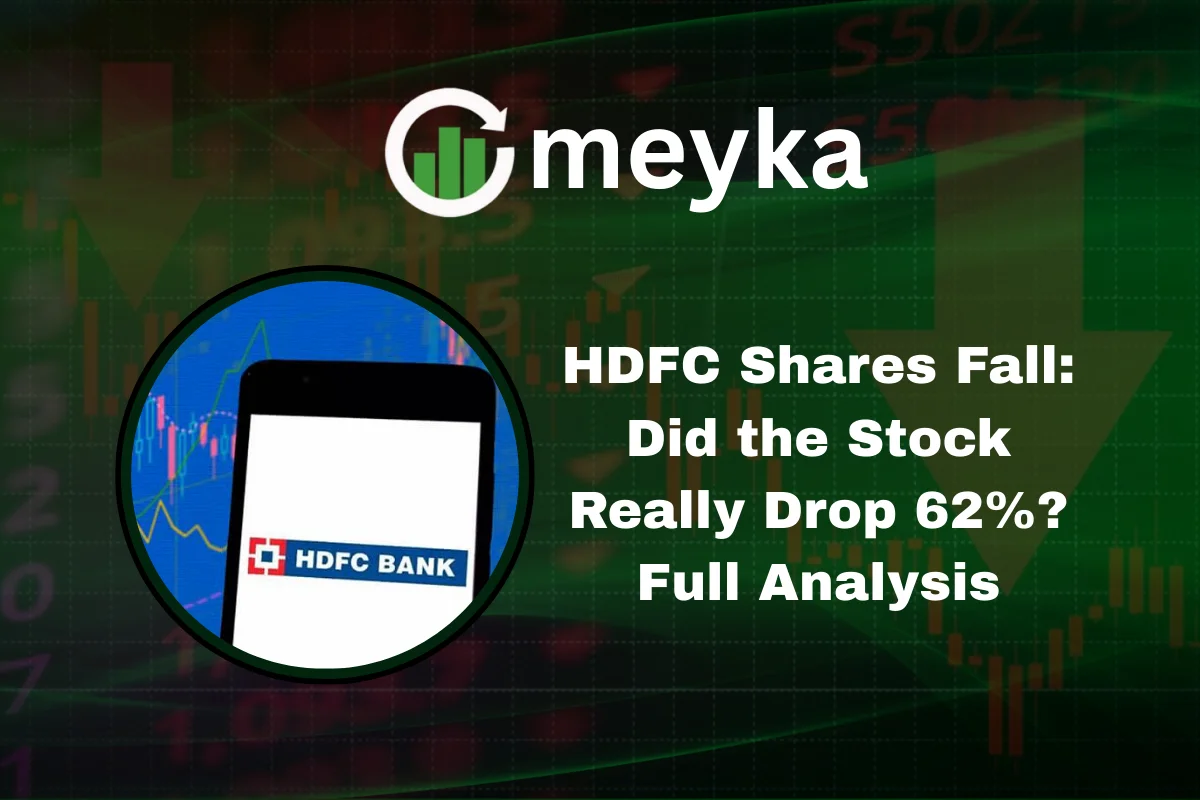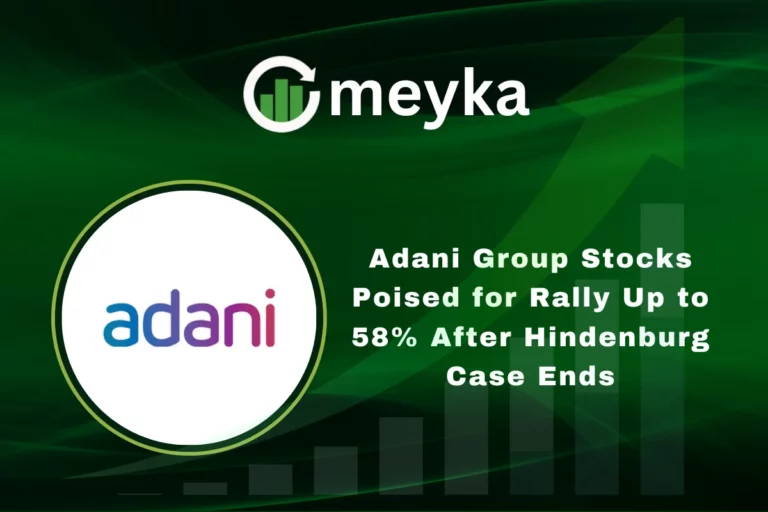HDFC Shares Fall: Did the Stock Really Drop 62%? Full Analysis
The recent news around HDFC shares sent shockwaves across the stock market. Headlines claiming a dramatic 62% fall in the stock triggered panic among investors. But was this massive drop real, or just a technical adjustment?
Why the News of a 62% Crash Spread Quickly
When markets opened, reports suggested that HDFC Bank’s stock had crashed by over 60%. For a company with such strong fundamentals, such a massive decline seemed unrealistic. The stock market community, retail investors, and financial analysts immediately started questioning whether this was a data error, a technical adjustment, or a reflection of real financial trouble.
What actually occurred was linked to index adjustments and stock realignment following the merger of HDFC Ltd. with HDFC Bank. This adjustment impacted the way market data was reported, and it created the illusion of a massive fall.
The HDFC Ltd. and HDFC Bank Merger Effect
To understand the confusion, we must revisit the HDFC-HDFC Bank merger, one of the largest corporate restructurings in India’s financial history. The merger led to adjustments in shareholding patterns, market capitalization, and index weights.
Whenever such a merger occurs, stock exchanges and index providers adjust the data to reflect the new structure. This often creates artificial movements in price charts, which can mislead investors who do not look deeper into the technical details.
The supposed 62% fall was not an actual loss of value but rather a technical recalibration of stock performance post-merger.
How Market Data Can Mislead Investors
The financial world heavily relies on automated reporting systems. Whenever there are corporate actions such as stock splits, mergers, or bonus issues, the price history is recalculated to provide an adjusted chart.
For HDFC shares, this recalibration led to misleading reports that the stock had fallen steeply. In reality, if we analyze the intraday stock data, the decline was nowhere near 62%.
This shows why investors should look beyond headlines and always rely on verified stock research from credible financial sources before making investment decisions.
Investor Reaction and Stock Market Sentiment
The initial panic saw many small investors questioning whether HDFC was facing financial trouble. However, institutional investors and professional market experts quickly pointed out that this was a technical issue rather than a business problem.
Market sentiment stabilized within hours as analysts clarified the situation. Still, the event highlighted how fragile retail investor confidence can be when misleading data circulates.
This situation is a reminder that investors should stay calm during volatility and focus on long-term fundamentals rather than short-term noise.
HDFC Shares: Long-Term Fundamentals Remain Strong
Despite the confusion, the long-term outlook for HDFC shares remains strong. The bank continues to hold a leading position in India’s financial sector with:
- A strong loan portfolio across retail and corporate sectors.
- Growing presence in digital banking and fintech partnerships.
- Stable asset quality despite global financial uncertainties.
- Expanding international investor interest in emerging market banking stocks.
This strong foundation ensures that temporary technical glitches do not change the real investment value of HDFC shares.
Comparing HDFC With Other Stock Market Trends
When compared with other global financial institutions, the performance of HDFC remains competitive. While AI stocks and technology-driven companies have dominated headlines, traditional financial giants like HDFC continue to provide stability and long-term growth.
The stock market has shown us that while new-age sectors bring innovation, strong banks remain the backbone of any economy. For investors, balancing between growth-driven AI stocks and stable financial shares like HDFC is a smart approach.
What This Means for Retail Investors
For retail investors, the HDFC incident teaches valuable lessons:
- Do not panic over headlines. A sharp decline in numbers may not always reflect the true financial health of a company.
- Focus on fundamentals. Long-term stock research shows that companies with strong business models recover from market noise.
- Diversify portfolios. Having exposure to sectors like finance, technology, and energy reduces overall risk.
Future Outlook for HDFC Shares
Looking ahead, analysts expect HDFC shares to stabilize and regain investor trust. As the Indian economy continues to grow, demand for loans, mortgages, and banking services will rise, directly benefiting HDFC Bank.
Additionally, with its strong digital infrastructure and financial products, HDFC remains positioned as a top-performing stock in the Indian market.
Investors who stay patient are likely to see steady returns in the long run, especially as India strengthens its role in the global economy.
Conclusion
The headline that HDFC shares dropped 62% was not a reflection of the company’s financial health but rather a technical adjustment linked to the merger. The fundamentals remain strong, and the long-term growth story of HDFC is intact.
Investors should take this event as a reminder to look deeper into stock market news and rely on trusted financial analysis before making decisions.
HDFC continues to be a pillar of the Indian financial system, and despite the noise, its shares remain a reliable investment option for those focused on long-term growth.
FAQs
No, the drop was a result of a technical adjustment due to the HDFC-HDFC Bank merger, not an actual decline in market value.
No, the fundamentals of HDFC remain strong, and the long-term outlook continues to be positive.
Investors should avoid panic, conduct proper stock research, and focus on long-term strategies rather than reacting to short-term volatility.
Disclaimer:
This content is made for learning only. It is not meant to give financial advice. Always check the facts yourself. Financial decisions need detailed research.






